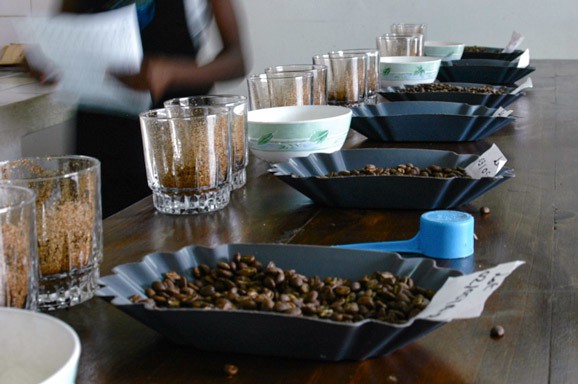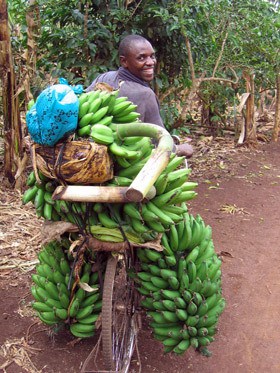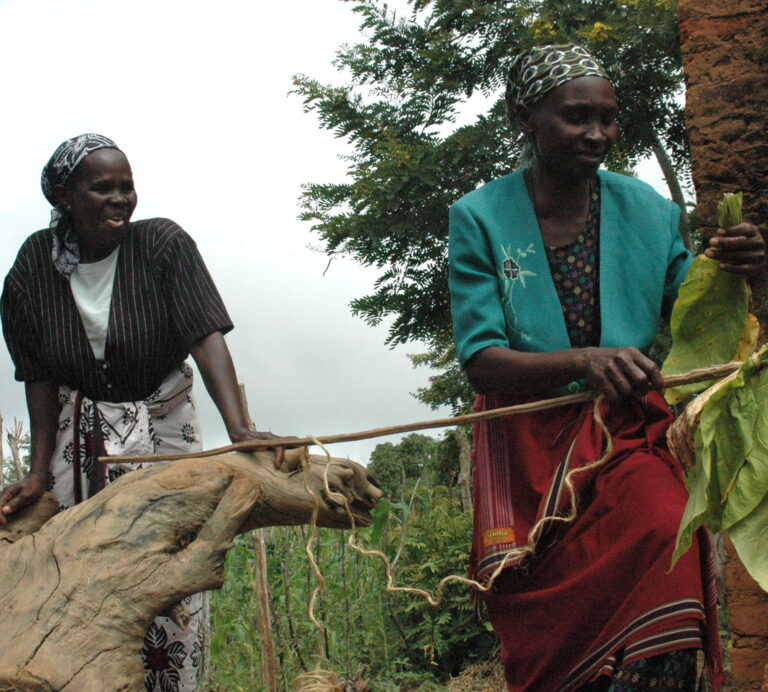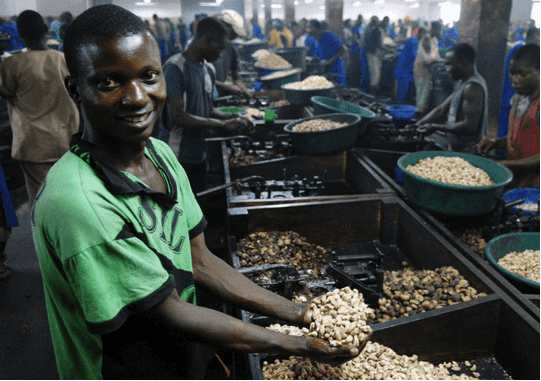Potato Taste Challenge Prize Winner Identifies Method to Reduce Potato Taste Defect in Coffee

In a recently completed study, Joseph Bigirimana and a research team at the Rwanda Agriculture Board (RAB) demonstrated a connection between controlling the notorious coffee pest, called the antestia bug, through organic insecticides, and reduced incidences of the Potato Taste Defect (PTD). In Rwanda and Burundi, as few as 2-3 antestia bugs per tree cause up to 45% crop loss. These insects have been linked to the presence of PTD, a defect that causes some specialty coffee in Africa’s Great Lakes Region to taste like spoiled potatoes. This hurts the coffee export market, resulting in significant revenue loss, and in turn harms the hundreds of thousands of smallholder farmers who grow the region’s coffee and whose livelihoods depending on those sales. Over the past years, researchers have hypothesized a connection between the antestia bug and PTD, but it has remained unclear how to control PTD. However, results from RAB’s research may hold the key to answering the mysterious question: how can we eliminate PTD?
“The experience of working with GKI and ACE was amazing – we have been gaining much through the communication, through disseminating information. Not just sharing, but networking with other people around the world was important!”
Joseph Bigirimana, RAB
In 2014, GKI partnered with Rwanda’s government to hold a Coffee Research Symposium in Kigali. At the Symposium, GKI and the Alliance for Coffee Excellence (ACE) announced the Potato Taste Challenge Prize, which funded a pilot study designed to marshal data aimed at eliminating PTD. As the winners of the Prize, Joseph Bigirimana and his team set off with nearly $20,000 to investigate what insecticides worked best to control antestia, and whether controlling antestia might reduce PTD.
Using five different “pyrethroid” insecticides, organically produced from local pyrethrum flowers, RAB tested the effects of the insecticides in the lab and the field. Preliminary lab assays concluded that pyrethroids were highly effective in controlling antestia when compared with conventional, more toxic pesticides. Next, RAB established field trials in three sites across Rwanda where researchers treated coffee trees with different pesticides. Once the coffee was harvested, RAB processed, roasted, and tasted coffee cherries. Results indicated that PTD occurrence was about 2.5 times higher in plots sprayed with conventional pesticides than in those sprayed with pyrethrum.
This research produced two major findings. First, the use of organic pesticides more effectively eliminated the antestia bug than conventional pesticides. If replicable, this finding has implications for investments in insecticides across the Great Lakes region of Africa. Pyrethrum-based insecticides, which are locally produced and organic, may in fact be more effective than the toxic insecticides currently imported to Rwanda. Second, this study found that treating coffee with pyrethroid insecticides reduced PTD relative to traditional insecticides and that insecticides of either type reduced PTD better than the control (plots not treated with pesticides). While this does not establish the causal linkage between antestia and PTD, it provides additional evidence for a long-surmised hypothesis and one central to the research efforts of GKI’s LINK Rwanda team: that effectively controlling antestia reduces PTD.
Because these results come from a small, single-year study, more research is needed to substantiate the findings. However, they suggest that managing PTD is feasible. Moreover, managing it on a regional level would not only increase farmer incomes, but would also strengthen the Great Lakes Region’s coffee market.
Contributors: Mahnoor Hussain, Andrew Gerard








